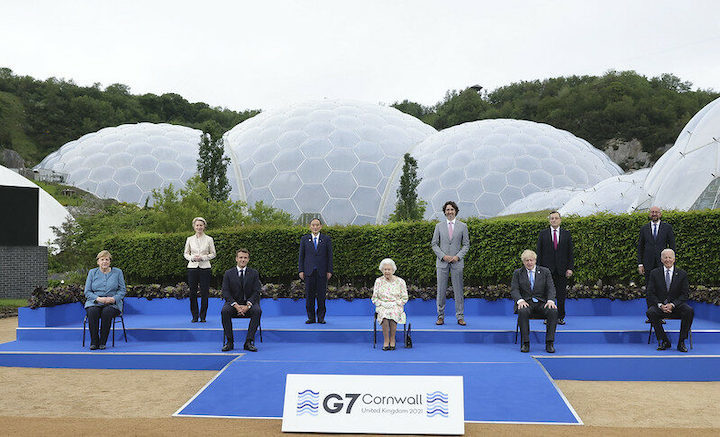13.06.2021

TAMPA, Fla. — The United States and five other countries are banding together with the United Kingdom to develop a satellite-based quantum technology encryption network.
The Federated Quantum System (FQS) will be based on the one British startup Arqit is developing for commercial customers, using quantum technology breakthroughs to guard against increasingly sophisticated cyberattacks.
But while that network is on a managed services platform run by Arqit, FQS will be closed off in a way that enables interoperability between allied countries.
Fighter jets and other military units and command and control centers would be able to share communications more securely across a sovereign-controlled network.
The governments of Japan, Canada, Italy, Belgium and Austria are also partnering on the initiative, which includes companies from each country to design and test the system.
Those commercial partners include British telco BT, U.S. aerospace giant Northrop Grumman, Japanese investment firm Sumitomo, Italian technology group Leonardo and Austrian quantum technology startup QTL.
The Canadian and Belgian subsidiaries of aerospace company Honeywell and defense technology firm Qinetiq, respectively, have also joined.
The cost of the project including an initial satellite in 2023 is expected to be more than $70 million, funded by the consortium’s government and commercial partners.
They will also have the option to buy a dedicated version at a cost of around $250 million over 10 years.
Arqit is lining up Virgin Orbit to launch the first FQS satellites in 2023 from the U.K., after it orbits a pair of spacecraft for its commercial counterpart that year.
Virgin Orbit, an air-launched rocket startup nearing the launch of its first payload for commercial customers, earlier invested in Arqit as part of the quantum venture’s merger with a special purpose acquisition company (SPAC).
Arqit expects to raise $400 million from that deal once it closes in the third quarter of this year.
The startup plans to make the first version of its QuantumCloud software available in July.
The software generates an unlimited number of encryption keys at the end point of customer devices, and will rely on terrestrial communications until its satellites are launched.
Arqit says using quantum computing technology for symmetric encryption is more secure than systems based on public key infrastructure (PKI), which is used to encrypt most of the world’s communications.
Another conflict?
It is unclear what the European Union will make of Italy, Belgium and Austria’s participation in Arqit’s FQS.
The three countries — and all EU members apart from Ireland — have signed up to plans to develop aEuropean quantum communications network called EuroQCI.
Airbus said May 31 it secured a contract from the European Commission to lead a consortium to study the quantum technology-powered network for Europe.
Leonardo is part of the 15-month study group, along with accountancy firm PwC France and Maghreb, French telecoms giant Orange and Italy’s CNR research council and NRiM meteorological institute.
Telespazio, a joint venture between Leonardo and French aerospace group Thales, is also part of the group.
An EU official recently suggested there may be a conflict of interest arising from French satellite operator Eutelsat’s $500 million investment in OneWeb in April.
Eutelsat is part of a separate consortium that has been studying a new satellite broadband constellation for the European Union since December.
Quelle: SN
